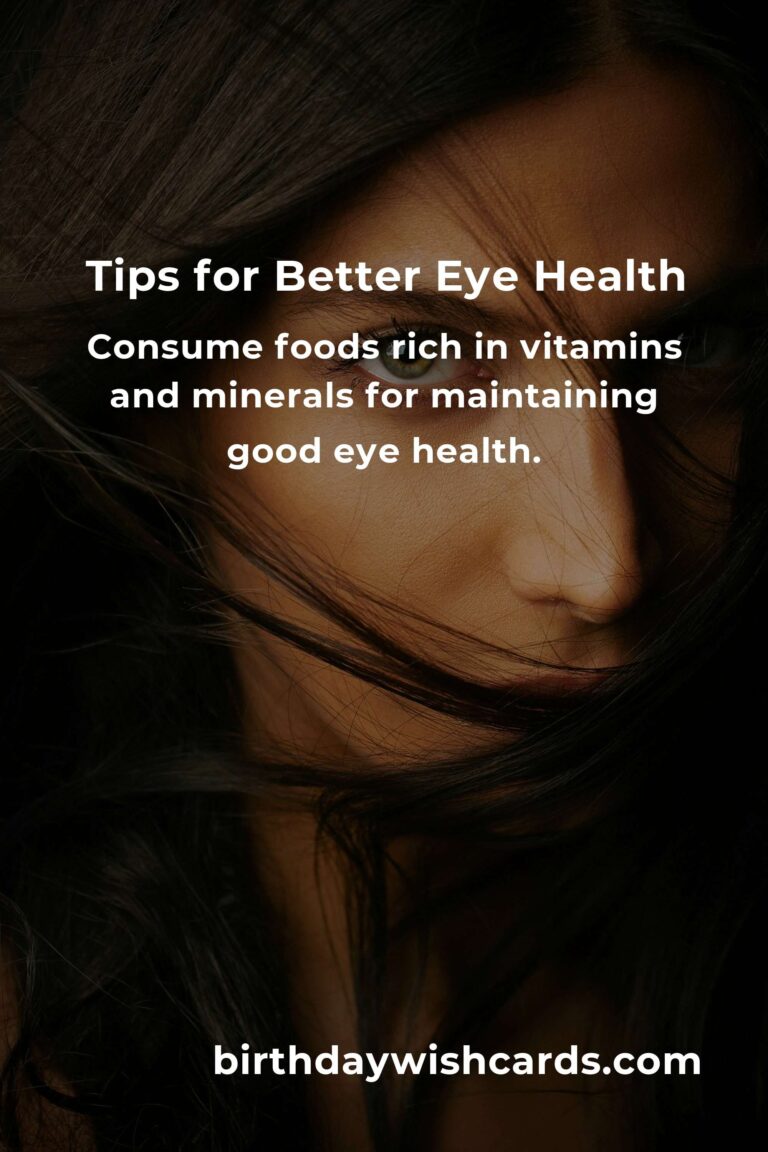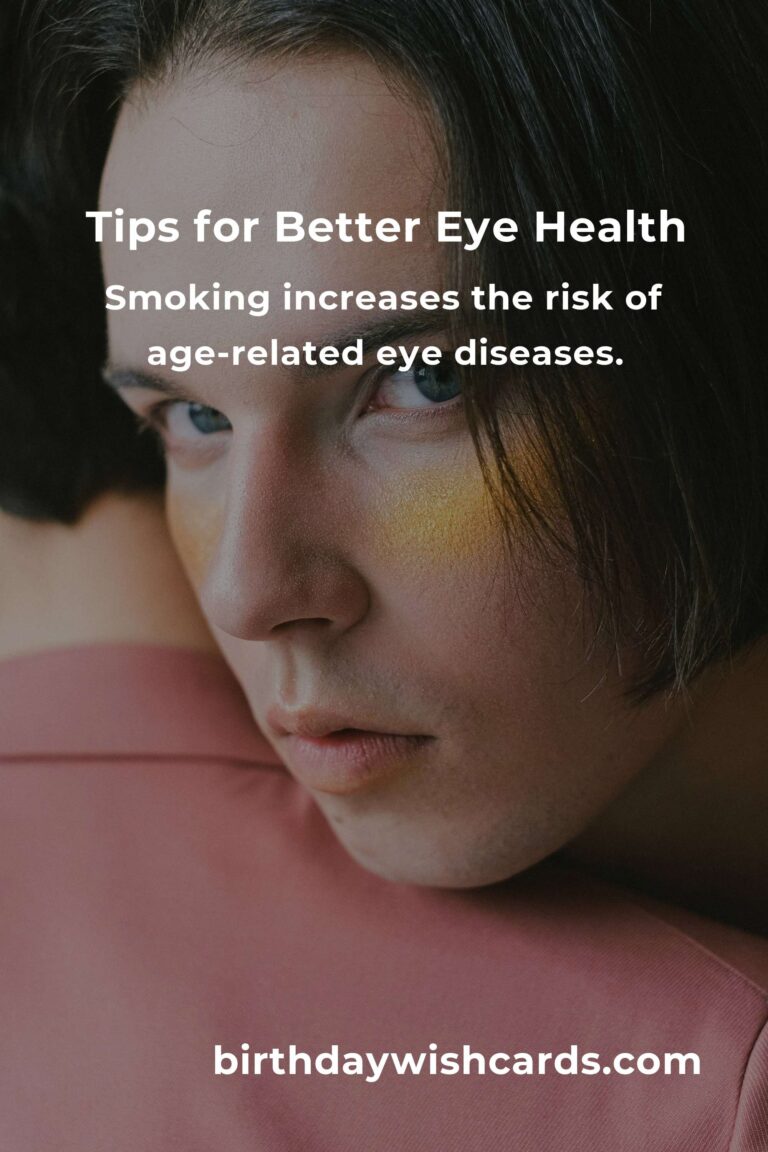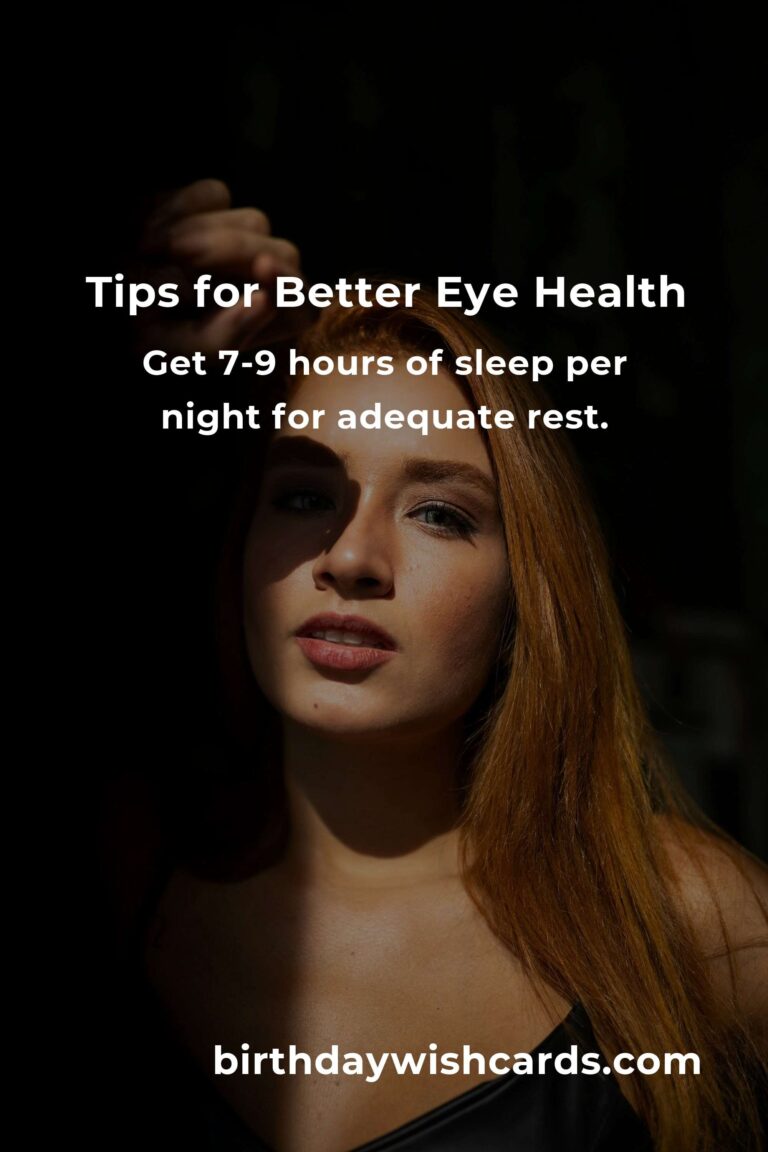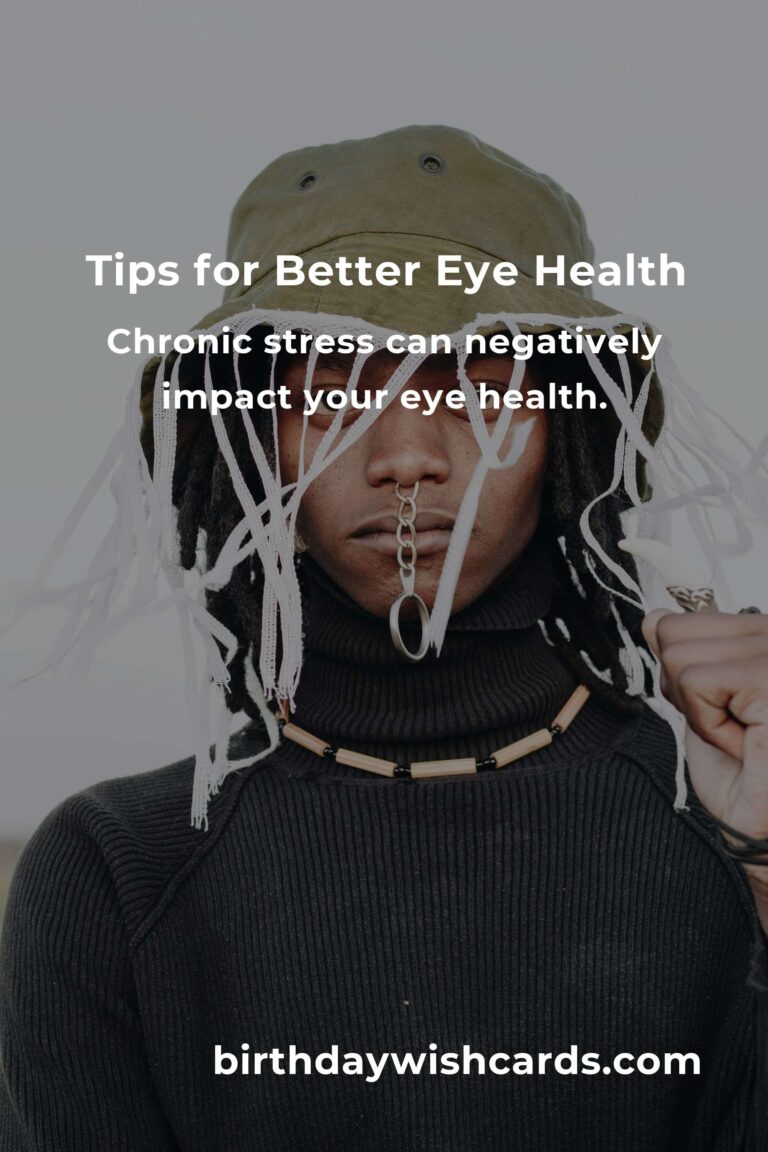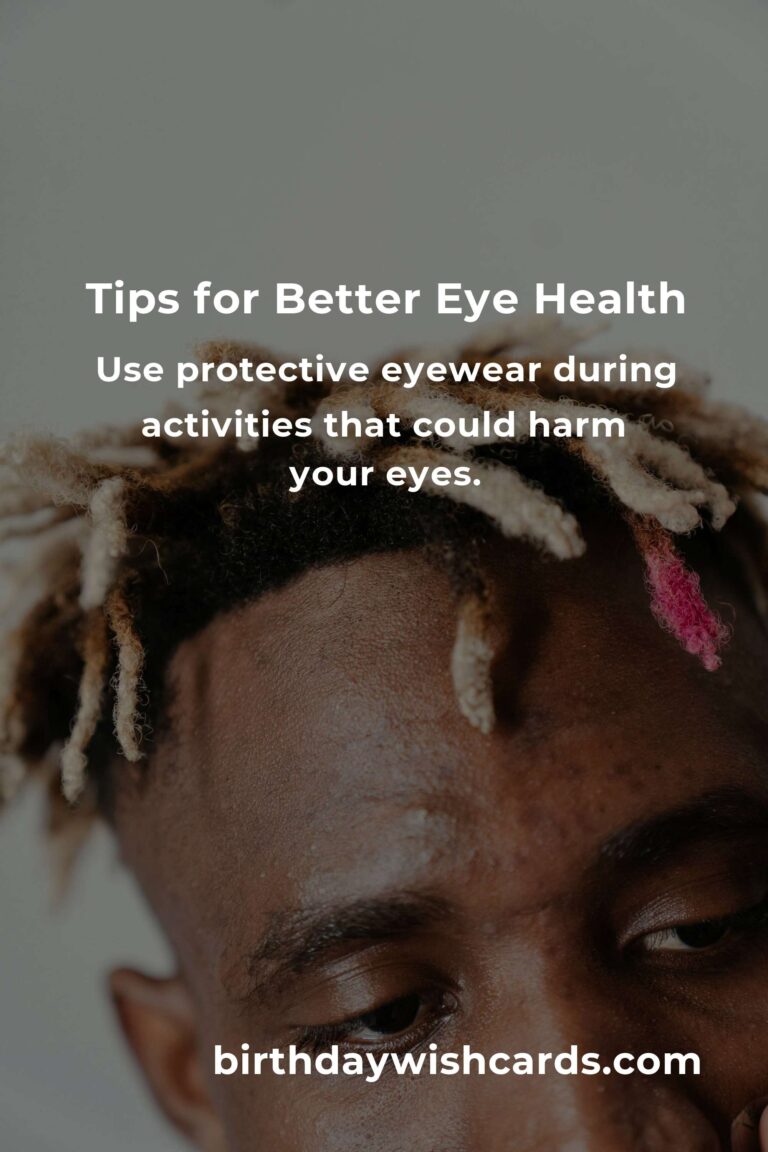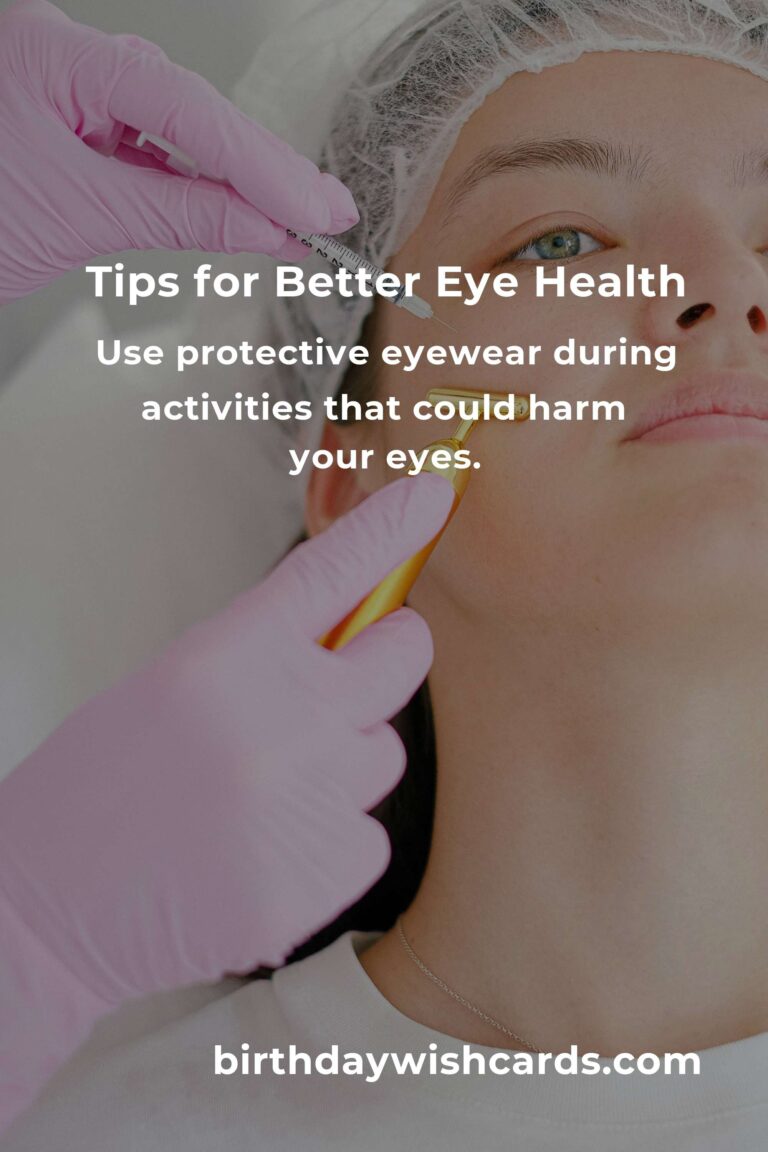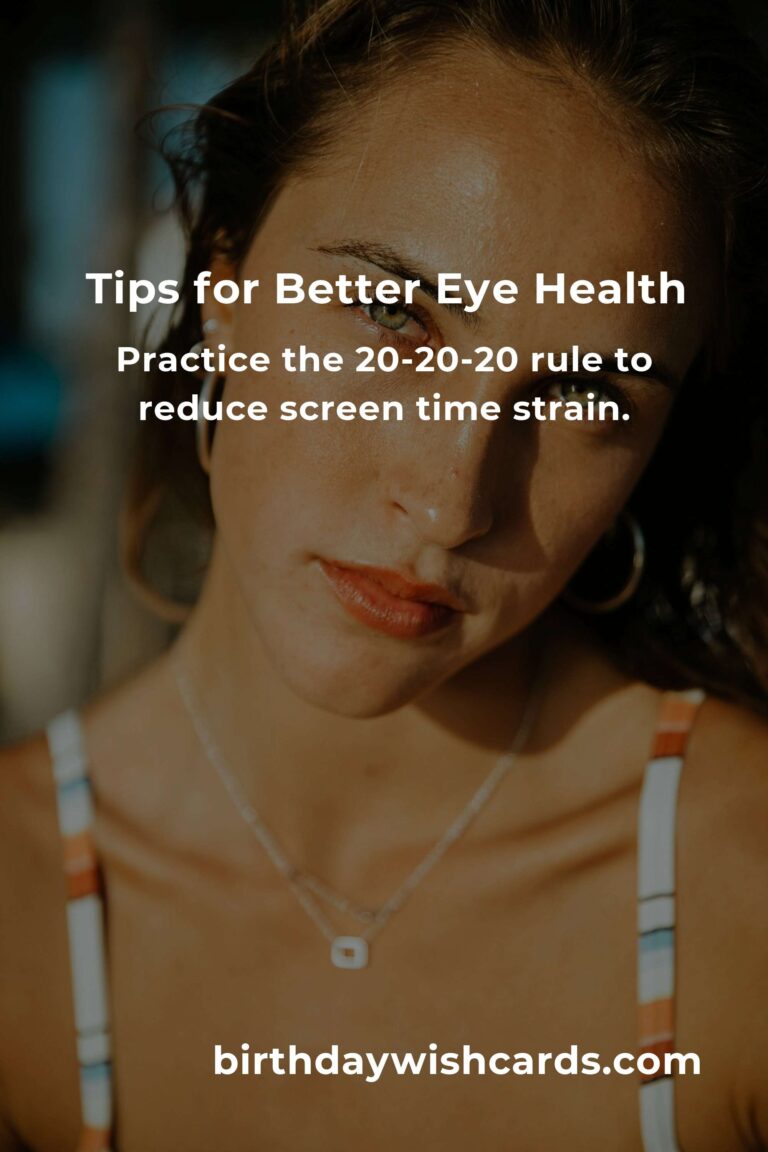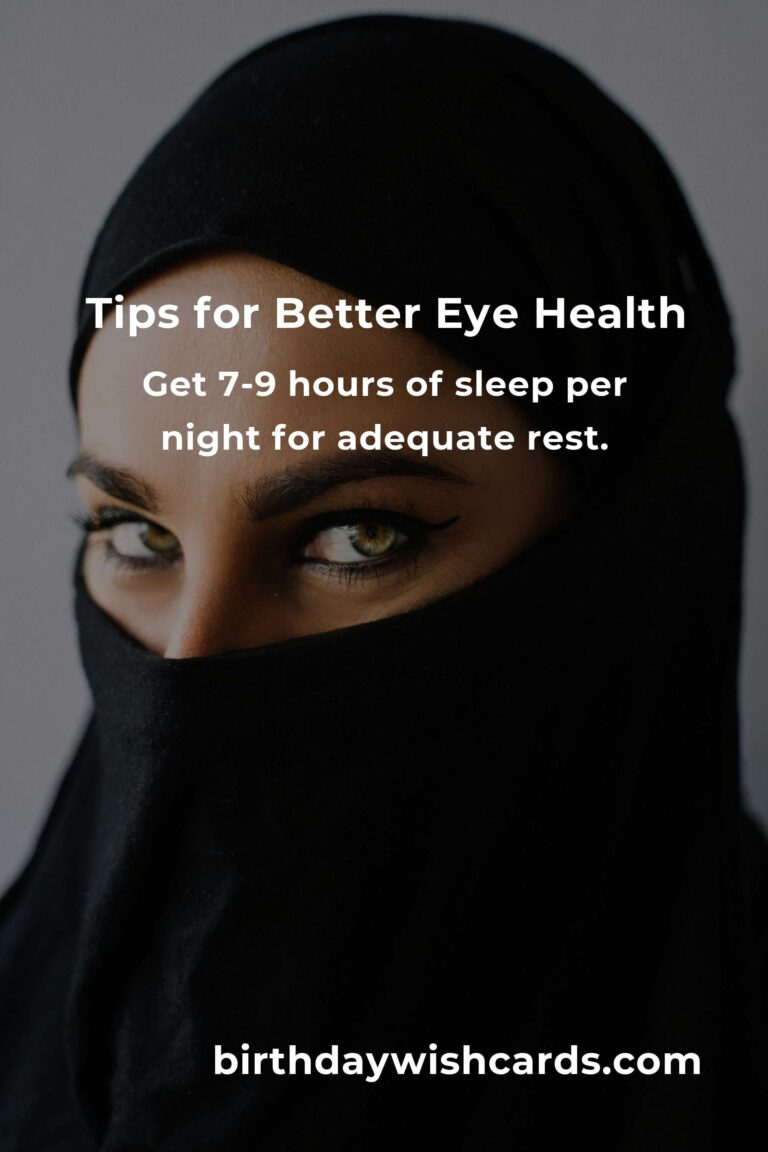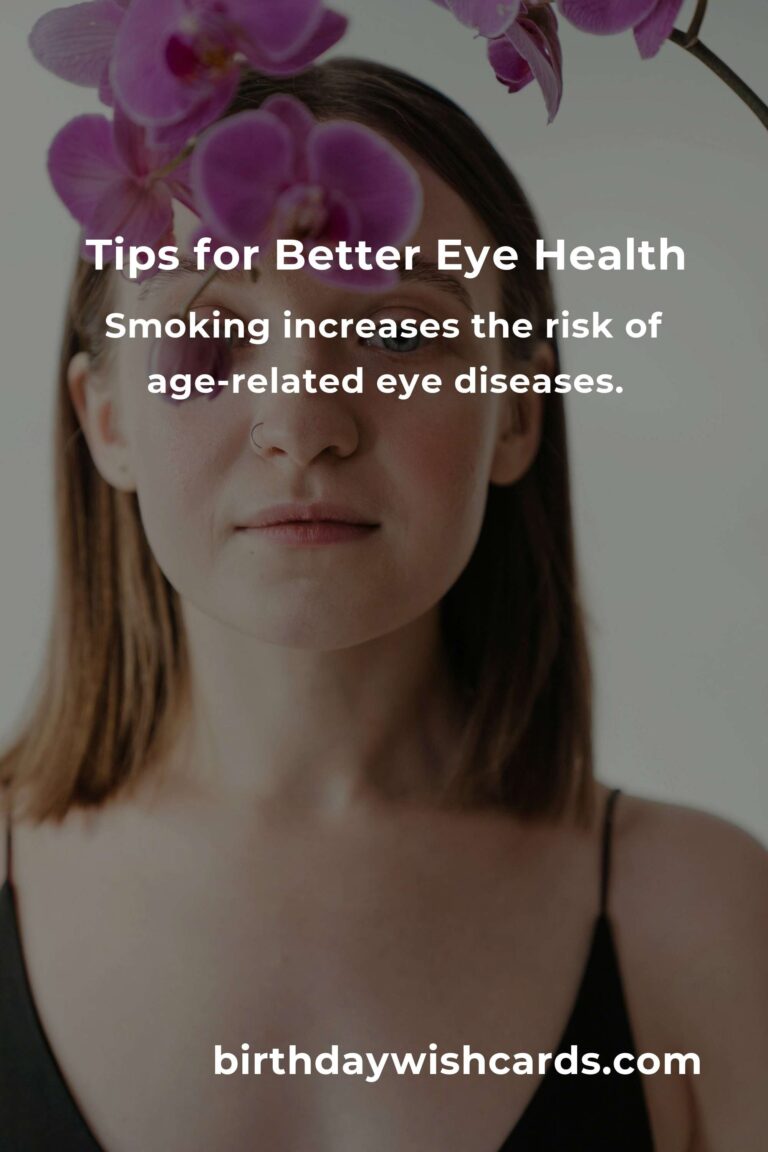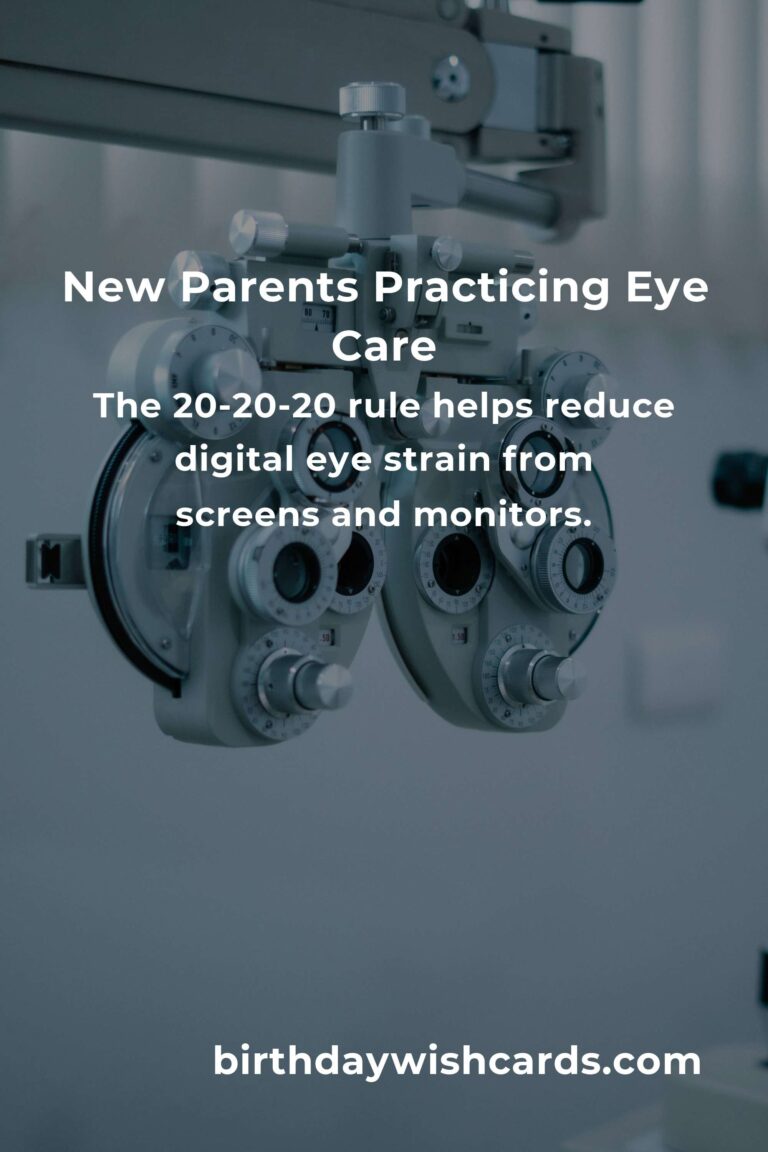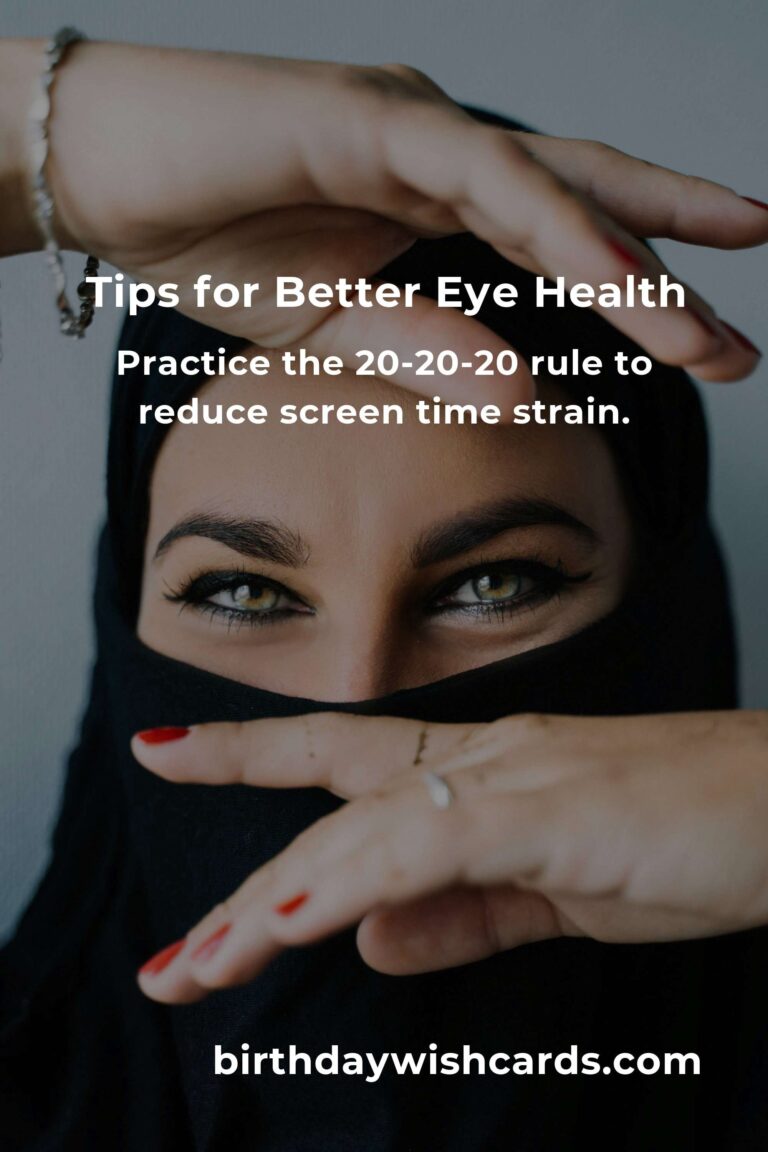
Your 20s are a crucial time for maintaining and improving eye health. The habits you develop now can have a lasting impact on your vision and overall eye health. Here are 47 essential tips to help you take care of your eyes during this important decade of your life.
1. Regular Eye Exams
Make sure to schedule regular eye exams with an optometrist or ophthalmologist. These exams can detect early signs of eye diseases and ensure that your prescription is up to date.
2. Eat a Balanced Diet
Consume foods rich in vitamins and minerals, such as leafy greens, carrots, and fish. These foods are beneficial for maintaining good eye health.
3. Protect Your Eyes from UV Rays
Always wear sunglasses that block 100% of UVA and UVB rays when you’re outside to protect your eyes from harmful ultraviolet light.
4. Limit Screen Time
Try to limit your screen time and take regular breaks using the 20-20-20 rule: every 20 minutes, look at something 20 feet away for 20 seconds.
5. Stay Hydrated
Drinking plenty of water is essential for overall health, including eye health, as it helps prevent dry eyes.
6. Use Proper Lighting
Ensure that your work and reading areas are well-lit to reduce eye strain.
7. Practice Good Hygiene
Always wash your hands before touching your eyes or handling contact lenses to prevent infections.
8. Avoid Smoking
Smoking increases the risk of developing age-related eye diseases like macular degeneration and cataracts.
9. Exercise Regularly
Regular physical activity improves circulation and helps reduce the risk of eye diseases.
10. Manage Stress
Chronic stress can negatively impact your eye health, so find effective ways to manage stress through activities like yoga or meditation.
11. Get Enough Sleep
Adequate rest is essential for overall health, including your eyes. Aim for 7-9 hours of sleep per night.
12. Use Protective Eyewear
When engaging in activities that could potentially harm your eyes, such as sports or DIY projects, always wear protective eyewear.
13. Reduce Blue Light Exposure
Consider using blue light filters on your devices or wearing blue light blocking glasses to reduce the strain on your eyes.
14. Avoid Rubbing Your Eyes
Rubbing your eyes can introduce germs and cause irritation. If your eyes are itchy, use eye drops instead.
15. Take Supplements if Needed
If your diet lacks certain nutrients, consider taking supplements like omega-3 fatty acids, vitamin C, vitamin E, and zinc.
16. Be Mindful of Allergies
Manage allergies by keeping windows closed during high pollen seasons and using air purifiers to reduce allergens indoors.
17. Use Makeup Safely
Replace eye makeup regularly to avoid contamination, and never share makeup with others.
18. Maintain a Healthy Weight
Being overweight increases the risk of developing diabetes, which can lead to diabetic retinopathy and affect your vision.
19. Know Your Family History
Be aware of any eye conditions that run in your family, as this information can help your doctor tailor a prevention plan for you.
20. Stay Informed
Keep up-to-date with the latest research and recommendations for eye health to make informed decisions about your care.
21. Wear Corrective Lenses
If you need glasses or contact lenses, wear them as prescribed to avoid straining your eyes.
22. Monitor Your Screen Position
Place your computer screen about an arm’s length away and slightly below eye level to reduce strain.
23. Follow the 20-20-20 Rule
To prevent digital eye strain, take a break every 20 minutes by looking at something 20 feet away for at least 20 seconds.
24. Use Artificial Tears
If you experience dry eyes, use artificial tears or lubricating eye drops to keep them moist.
25. Adjust Display Settings
Adjust the brightness and contrast of your screens to a comfortable level to minimize eye strain.
26. Avoid Bright Lights
Minimize exposure to bright lights, especially at night, to help your eyes rest.
27. Wear Goggles in Pools
Chlorine and other chemicals in pool water can irritate your eyes, so wear goggles to protect them.
28. Curb Digital Device Usage at Night
Reduce the use of digital devices before bed to help your eyes and circadian rhythm adjust for a good night’s sleep.
29. Take Care of Contact Lenses
Follow proper cleaning and storage methods for your contact lenses to prevent infections.
30. Avoid Overuse of Eye Drops
While eye drops can provide relief, overusing them can lead to dependency and worsen symptoms.
31. Be Cautious with Eye Whitening Drops
Limit the use of drops designed to whiten eyes, as they can cause rebound redness.
32. Manage Chronic Conditions
If you have conditions like diabetes or hypertension, manage them effectively to reduce the risk of eye complications.
33. Know Signs of Eye Problems
Recognize symptoms of eye issues, such as blurred vision, eye pain, or sudden vision loss, and seek medical attention promptly.
34. Participate in Regular Check-ups
In addition to eye exams, ensure you have regular health check-ups that can identify systemic conditions affecting your eyes.
35. Choose the Right Eyewear
Select eyewear that meets your needs, whether it’s prescription glasses, sunglasses, or protective goggles.
36. Avoid Excessive Alcohol
Excessive alcohol consumption can lead to nutritional deficiencies and negatively impact your eye health.
37. Limit Caffeine Intake
High caffeine consumption can contribute to dry eyes, so moderate your intake.
38. Practice Eye Exercises
Consider incorporating eye exercises into your routine to help alleviate strain and improve focus.
39. Use an Anti-glare Screen
If you spend a lot of time on digital devices, an anti-glare screen can reduce eye strain.
40. Be Mindful of Air Quality
Poor air quality can irritate your eyes, so use air purifiers and limit exposure to pollutants.
41. Choose the Right Lighting
Opt for warm lighting to reduce glare and strain on your eyes.
42. Avoid Direct Air Flow
Keep fans and air conditioners from blowing directly into your eyes to prevent dryness.
43. Use a Humidifier
If you live in a dry climate, using a humidifier can help maintain moisture in the air and prevent dry eyes.
44. Avoid Smoking Areas
Secondhand smoke can also harm your eyes, so avoid exposure to smoking areas.
45. Educate Yourself
Learn about eye conditions and their symptoms to better understand and protect your eye health.
46. Stay Active
Physical activity promotes healthy blood circulation, which is crucial for eye health.
47. Listen to Your Eyes
Pay attention to how your eyes feel. If you notice any discomfort or changes in vision, consult with a healthcare professional.
By following these tips, you can significantly improve and maintain your eye health throughout your 20s. Remember, taking care of your eyes now can prevent issues in the future and enhance your quality of life.
Your 20s are a crucial time for maintaining and improving eye health.
Regular eye exams can detect early signs of eye diseases.
Consume foods rich in vitamins and minerals for maintaining good eye health.
Always wear sunglasses that block 100% of UVA and UVB rays.
Practice the 20-20-20 rule to reduce screen time strain.
Smoking increases the risk of age-related eye diseases.
Chronic stress can negatively impact your eye health.
Get 7-9 hours of sleep per night for adequate rest.
Use protective eyewear during activities that could harm your eyes.
Be aware of any eye conditions that run in your family.
#EyeHealth #VisionCare #HealthyHabits #Wellness #EyeCare


